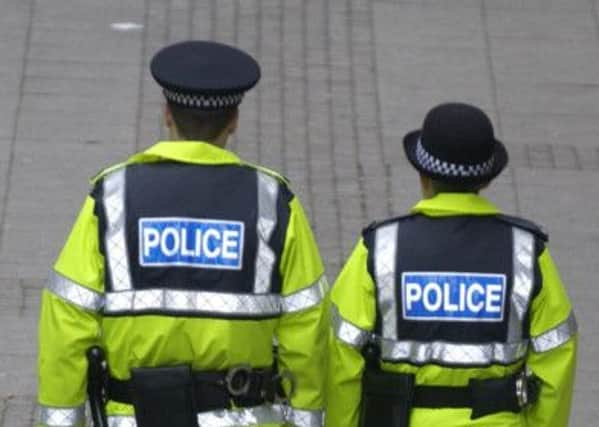Fears police whistleblowers may be deterred


Police Scotland has referred a case involving an officer from the west of Scotland to the Crown Office and Procurator Fiscal Service, Scotland on Sunday has learned.
The officer could face court action under the Data Protec-tion Act 1998 as a result of over 40 investigations into alleged leaks made by former Strathclyde police personnel.In England, 61 people have so far been arrested following probes into alleged corrupt payments to public officials. It is not known whether the Scottish case involves financial inducements.
Advertisement
Hide AdAdvertisement
Hide AdThe investigations into alleged leaks of police information in Scotland emerged from a Freedom of Information legislation request to Strathclyde Police. Documents reveal police have only found enough evidence to support a prosecution in one of 45 cases.
Of the rest, eight have been disproved, 29 unsubstantiated, and seven are subject to review in the event that further evidence comes to light.
Aamer Anwar, a lawyer who presented a dossier to Strathclyde Police alleging phone hacking of high-profile Scots, said: “There is no place for corruption in the police service, whether they leak or sell (information) it should not be tolerated.
“The concern I have is these matters have been going on for a number of years. Suddenly information appears in a newspaper and it is information that could only have come from a police officer, as even the Crown or defence agent would not know.”
In future, allegations of leaking or selling information by police may be investigated by the Police Investigations and Review Commissioner (Pirc), which came into force at the start of April, at the same time as Police Scotland. The Crown Office now has the option of directing Pirc or Police Scotland to investigate alleged data protection breaches by police.
Despite just one case out of 45 being referred to the Crown Office so far, Police Scotland said it was satisfied with the investigations carried out.
Assistant Chief Constable Ruaraidh Nicolson said: “We have full confidence in the 45 thorough investigations conducted by Strathclyde Police in respect of suspected leaks to the media in the last five years.
“The Counter Corruption Unit, which undertook these investigations, concluded that 82 per cent of the allegations were either unsubstantiated or were disproved. One officer has been reported to the COPFS as a result of their investigations.”
Advertisement
Hide AdAdvertisement
Hide AdBut freedom of information campaigners believe the investigations raise concerns about a culture being created where people believe they cannot speak out.
Eileen Chubb, a trustee of Whistleblowers UK, said it was important that officers continue to speak to journalists, where appropriate, without money changing hands.
“My concern is that genuine whistleblowers will be deterred from coming forward,” she said. We are going to pay if things that are in the public interest are never made public.”
The most senior police officer jailed so far as a result of leak investigations is counter-terrorism detective April Casburn, who claimed she wanted to blow the whistle on the Metropolitan Police’s phone hacking investigation.
Detective Chief Inspector Casburn, 53, rang the News of the World to discuss Scotland Yard’s decision to launch a new investigation into phone hacking. She claimed she made the call because the public should know that counter-terrorism officers were being used to investigate phone hacking instead of “saving lives”.
But in February a jury found her guilty of misconduct in a public office and jailed her for 15 months.
Sentencing her at the Old Bailey, Mr Justice Fulford said it was “a corrupt attempt to make money out of sensitive and potentially very damaging information”.